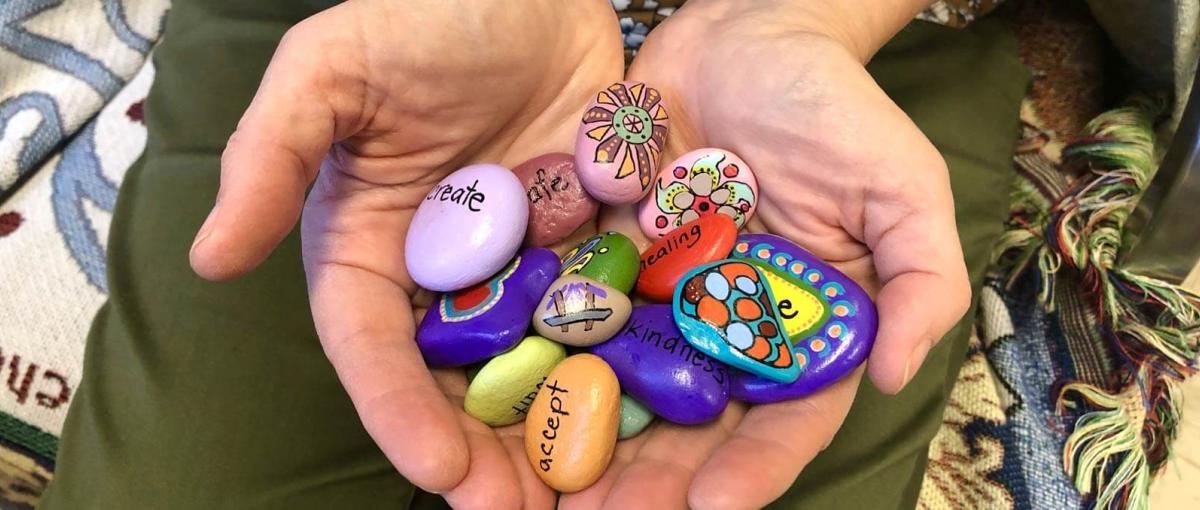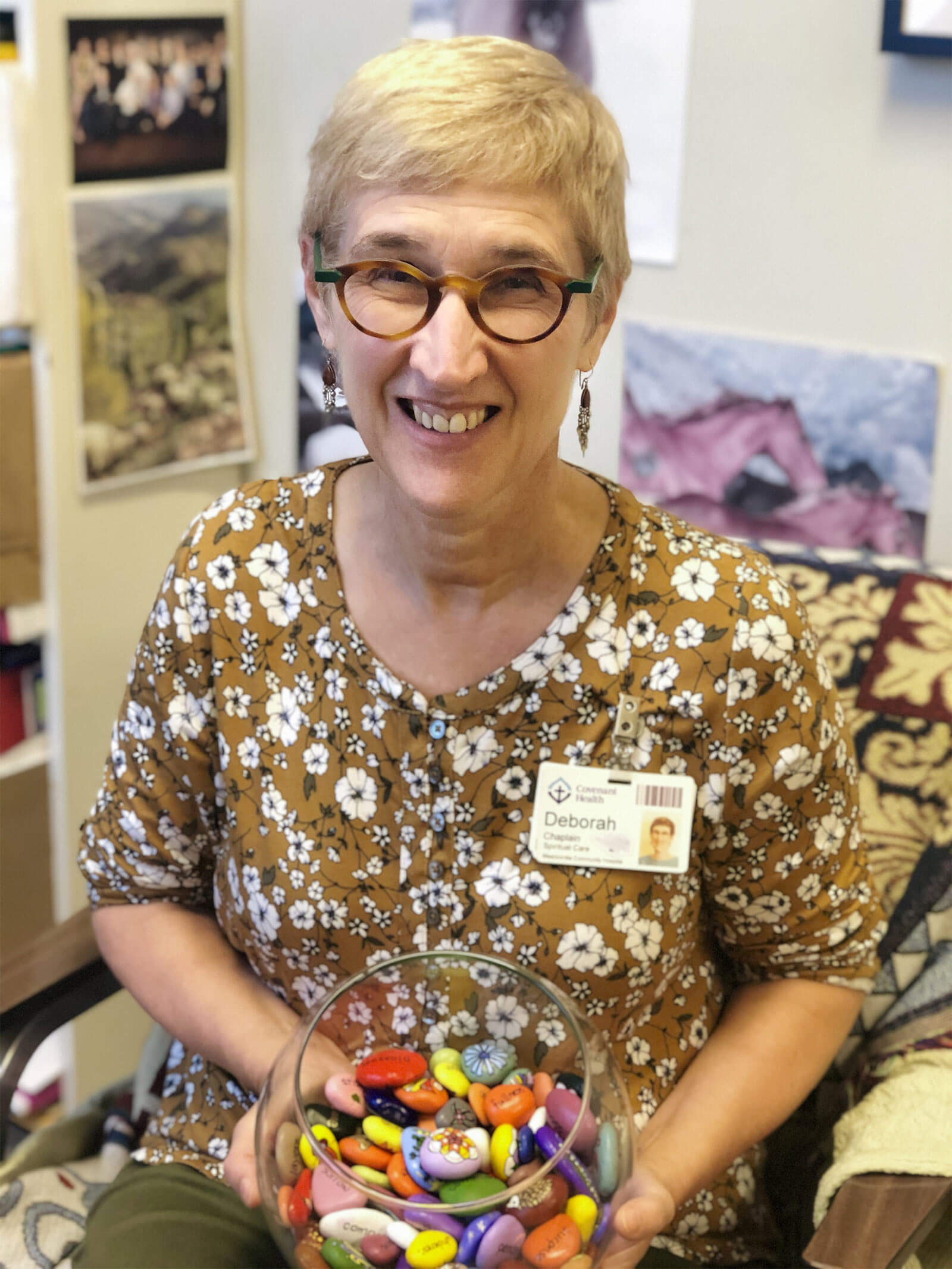Spiritual care through expressive arts

January 16, 2020
By Rey Rosales, Storytelling Advisor, Covenant Health
The bone cancer came back so aggressively that doctors cancelled her surgery.
Chaplain Deborah Kirkpatrick met with the woman to provide support, including asking what she would find nurturing. The hospital patient, who was in her 60s, spoke about images of children, recalling activities that she did as a child or with her kids.
Deborah searched the Internet and found a range of photos, letting the woman choose the ones she liked best. “We posted them on the walls, where she could see them while lying down on her side.”
Deborah believes the photos comforted the dying woman.
Providing comfort to patients can take many forms through a hymn, a prayer, an arts-related activity or even pictures, says Deborah, who has provided spiritual care to patients at the Misericordia Community Hospital since 1997.
In the past few years, Deborah has been using an expressive arts approach to spiritual care. The practice uses art expression to explore meaning, and it requires active listening and being present in the moment.
“I use it as another tool to provide a space where patients can feel comfortable to talk.”
Deborah uses a repertoire of creative tools — music, painting or colouring — to establish patient connections. And she adapts her toolkit to meet the needs of an individual.
“If a patient can’t speak or has some cognitive issues, I just use a small musical instrument for them to play with. Or if something feels right, I might just sing a soothing song.”

Deborah Kirkpatrick holds the rock bowl filled with painted rocks.
A rock bowl — filled with painted rocks with a message on one side — is a new tool in Deborah’s expressive arts toolkit. She went to a nearby river, where she meditated and collected rocks that spoke to her heart.
“People’s eyes light up when I bring the rock bowl to the room. I ask patients to pick out a few that connect with them. They then create a sentence out of the word written on each rock, which makes for a good starting point for conversation.”
Expressive arts are about the process that leads to meaningful self-discovery and self-expression in the caring presence of another rather than the artwork produced, Deborah says.
When people become really sick, they are put in a place of vulnerability where a lot of questions come up, says Deborah. They get moved out of the ordinary world into something unfamiliar, frightening and scary, she adds.
“My role is to get a sense as to what’s going on for them, to provide a safe space without judgment, with kindness, without demanding anything except to be there to hear their stories.”
Out of the conversations, she then gets guidance on what to do next.
“Within that journey, I trust in one thing: that deep in each person, if given the right conditions, there’s a movement towards a certain form of healing even when a cure is not possible.”